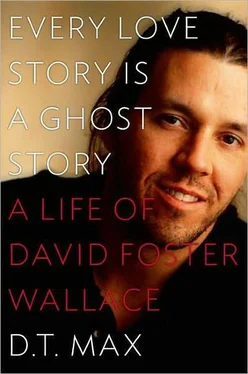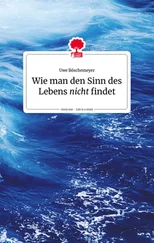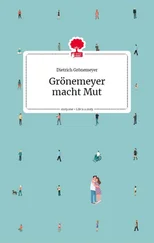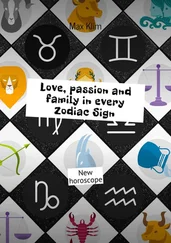To their eyes, the twenty-five-year-old Wallace was a mystery. He came to class in his Arizona bandana (some thought it was to keep his hair from falling out), Timberland boots, and plaid shirts, cursed, and took frequent smoking breaks. He was trying to quit smoking and so had begun chewing tobacco. 10He was happy to extend office hours for as long as students wanted, but if he bumped into them on the street he hardly acknowledged them. One student was reminded of Dostoevksy’s Underground Man. Costello came for a visit and found his old roommate strangely diminished. He remembers “everything happening in very slow motion — getting dressed to go out, finding car keys, finding dip, notebook, working pen, writing a phone message.” There were only blondies and mustard in the fridge. Wallace told his college roommate he worried that pot smoking had ruined his brain permanently and he would never be able to write again.
Depressed, he was still not without romantic appeal. Two undergraduate women in his class set off one day to see where he lived and were excited to find his apartment above a sandwich shop in a run-down part of Amherst. When two students in his class asked if he wanted to go hear an Irish band play in Springfield, forty minutes south on the interstate, he surprised them by agreeing. On the way home the car, which Wallace was driving, spun out, leaving them all scared by the side of the road before they climbed back in and returned to the college. They did not repeat the adventure. To them, he looked spooked, hollowed out, adult.
Toward the end of the semester, Wallace occasionally dropped hints of a different life. When he gave his class an excerpt from Story of My Life to read, he mentioned he had been with the author at Yaddo when he was writing it. That fall he went to New York to receive a Whiting Award, and afterward told the class he had met Eudora Welty. At semester’s end, Wallace gave his students his Jeopardy! story, “Little Expressionless Animals,” to read and critique. “I’ve spent all semester reading your stuff and now you can read something of mine,” he told them.
Wallace’s only obligations were his once-a-week class and office hours. “I’m basically on my own,” he wrote Ashby. He turned out to miss structure, writing in a letter later in the semester, “The view from my apartment, where I spend staggering amounts of time, always seems accessed through dirty windows, no matter how vigorously Windex is applied.” Andrew Parker, with whom he was supposed to be sharing an office, was surprised how little he saw of his former student. And when he was around, there was something about Wallace’s behavior that discouraged questions.
No one in his orbit guessed the intensity of Wallace’s suffering — the television he watched (six to eight hours a day, he told one of his students), the drinking, drugs, and loneliness. It was not that he was not trying to write; it was that he was not succeeding. He may have picked up some older stories at this time and reworked them, especially “Church Not Made with Hands,” an intricate story about an art therapist and a man coping with his daughter’s brain injury that he had first submitted in Mary Carter’s workshop at Arizona. He started two novellas sometime around this time, of which he would later say that they were “just so unbelievably bad…. Hopelessly confused. Hopelessly bending in on themselves.” (They have never surfaced.) The feeling he had said all he had to say in “Westward” still lingered. The story pointed backward but not forward; metafiction was done, but what was to come? He had no experience writing without inspiration — creativity was tied in to the manic part of his personality. Esquire was interested now in publishing his Letterman story, but he would have to cut ten to fifteen pages. Wallace dutifully tried but in the end the magazine turned it down.
Predictably, the planned late November wedding began to come apart. Walden had returned to her family in Chicago, worried about her fiancé’s drinking, and in mid-October he visited her there. They fought. One issue was that Wallace had invited Alice Turner to their ceremony, and Walden, when she discovered what had gone on at Bennington, refused to have her at the celebration. Wallace strove to explain, but Walden could not be convinced — at least this was the version Wallace gave Turner in a letter; Wallace may have been exaggerating or simply inventing. One way or another, the relationship appeared truly finished. Wallace went on a new bender, considering suicide. “I’ve hurt not just me but her and her family,” he wrote a friend three weeks later, saying the new break with Walden left him “feeling dead.”
But though breakups were often the prompts for Wallace’s collapses, they never quite seemed the cause. Indeed, the decision to force things with Walden may have been a deliberate whack of the Paddle of Immoderation, an attempt to shock himself into writing again. Whatever the motive, the break with Walden felt final.
Becalmed back in Amherst, Wallace began to yearn for Tucson. He had not particularly liked the city, but he had written well there. As the fall wore on, he asked JT to confirm the rumor of “gorgeous new poetesses” in the MFA program, and when the faculty invited him back to give a reading at the Poetry Center in January 1988, he went. He flew west and met up with old friends, many still in the writing program. He and Ashby went climbing in the Tucson Mountains west of the city. A new graduate student, Martha Ostheimer, whom Forrest was friends with, came along. Wallace strove to impress her by running up the mountain before the other two, but he was out of shape and wound up vomiting in some bushes near the summit. That evening there was a party, and afterward, he and Ostheimer talked for hours in her car about literature, particularly Pynchon. He wound up in her apartment, where they spent the next several days. A relationship no sooner begun, Wallace fled it. Quickly he flew off to San Francisco, where, he told Ostheimer, he had to see Nadell. He came back to Tucson for the reading and impressed his old pals by crumpling and tossing the pages of “Westward” as he read it. “It was,” remembers Ostheimer, “as if they no longer existed after he’d read them.” When Ostheimer went around to see him at JT’s, the former marine told him Wallace was not available. Afterward, Wallace sent JT a note thanking him for his help, but to Ashby he admitted, “I think I’ve again fucked up girl-wise.” He apologized to Corey Washington, who was at Stanford, saying he’d been “too hung over” to visit. One last note he sent was to Rich C., a friend from the writing program with whom he used to get drunk. Rich C. 11had recently entered an alcohol abuse program. “Let me know how it’s going,” Wallace wrote. He saw that things couldn’t continue this way indefinitely.
Wallace had returned home to Urbana by January 1988, his semester appointment over. He had tried to find a job after Amherst but failed. One place he approached was the MFA program at the University of Arizona. “I asked the fiction faculty,” remembered Steve Orlen, then the director. “They didn’t want him.” Frank Conroy, with whom he had read at the West Side Y in spring 1987, was a fan but told him that the Iowa Writers’ Workshop had no positions open right now. The Provincetown Fine Arts Center said he was “over-qualified” for a residency. Wallace had no choice but to turn to his parents, resubscribing to what he later called “the Mr. and Mrs. Wallace Fund for Aimless Children.”
Six months had passed since he had received his MFA. Little had gone right in that time and nothing had gotten written. He finally recognized that he had a drug and alcohol problem. In February, he began going to weekly sobriety meetings. Wallace would later tell friends he enjoyed them and also that he could see that what they were asking him to do was extremely hard. He had smoked pot heavily for most of the past decade. Pot had opened the door for him as a writer. Now he was targeting it in the hopes his life, haunted by anxiety, failed relationships, and a feeling that he could no longer write well, would improve. 12One comfort was that his story collection would be out in the fall. Alice Turner had bought the Letterman story for Playboy and Conjunctions , a literary journal, had even taken “John Billy,” the Gass homage. All seemed aligned for Girl with Curious Hair to appear, a second book from this promising young author. 13
Читать дальше












